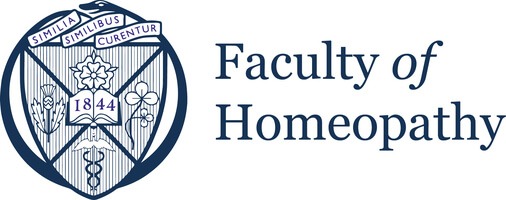Tomatoes are a versatile and widely consumed fruit, featuring prominently in various cuisines around the world. Their vibrant colors and rich flavors make them a popular choice in many dishes, but their potential health benefits have also been recognized since ancient times. In this article, we'll explore the nutritional profile of tomatoes, discuss their many health benefits, and delve into the integrated medicine approach to a holistic and balanced diet.
If you're looking for a complementary approach to boost your overall health and wellness in London, consider trying IV drip therapy. Our clinic in the city offers customized IV drips that deliver essential vitamins, minerals, and other nutrients directly into your bloodstream for maximum absorption. These treatments can help support the health benefits gained from a balanced diet rich in nutrient-dense foods like tomatoes. Whether you're seeking improved immunity, enhanced energy levels, or better stress management, IV drips can be a valuable addition to your health routine.
The Healing Powers of Tomatoes in History
Throughout history, tomatoes have been used as a medicinal plant, primarily due to their rich nutritional content. With the emergence of integrated medicine, which combines traditional and alternative practices for a holistic approach to health, tomatoes have gained even more prominence as a functional food with potential therapeutic properties.
Nutritional Profile of Tomatoes
Macronutrients: The Building Blocks of a Healthy Diet
Tomatoes are a low-calorie food, predominantly composed of water and carbohydrates, with a modest amount of protein and dietary fiber. They are a great addition to a balanced diet, providing essential nutrients without excessive calories.
Micronutrients: Vitamins and Minerals for Optimal Health
Tomatoes are packed with an array of vitamins and minerals that contribute to overall health and well-being. They are a particularly rich source of vitamin C, which plays a vital role in immune function, collagen synthesis, and iron absorption. Vitamin A, found in tomatoes as beta-carotene, supports healthy vision, immune function, and skin health. Tomatoes also contain essential B vitamins, such as folate, and minerals like potassium, magnesium, and iron, which are important for various physiological processes, including blood pressure regulation and energy production.
Phytonutrients: The Power of Plant Compounds
One of the most notable aspects of tomatoes is their high concentration of phytonutrients—plant compounds with potential health benefits. Lycopene, a powerful antioxidant, is responsible for the red color of tomatoes and has been linked to numerous health benefits. Other important phytonutrients in tomatoes include beta-carotene, quercetin, and naringenin, which contribute to their antioxidant, anti-inflammatory, and antimicrobial properties.
Health Benefits of Tomatoes
Antioxidant Properties: Combating Inflammation and Oxidative Stress
Tomatoes are rich in antioxidants, which help neutralize harmful free radicals in the body, thereby reducing inflammation and oxidative stress. By combating these damaging effects, tomatoes can potentially help prevent various chronic diseases and support overall health.
Cardiovascular Health: A Heart-Healthy Choice
Regular consumption of tomatoes has been associated with improved cardiovascular health. The high potassium content in tomatoes helps lower blood pressure, while the presence of antioxidants like lycopene and other phytonutrients has been linked to reduced cholesterol levels and improved endothelial function. Together, these factors contribute to a reduced risk of heart disease and stroke.
Cancer Prevention: Harnessing the Power of Lycopene
Tomatoes are rich in lycopene, a phytonutrient that has been extensively studied for its potential role in cancer prevention. Research suggests that diets high in lycopene-containing foods, such as tomatoes, may be associated with a lower risk of certain types of cancer, including prostate, breast, and lung cancers.
Skin Health: Protection from Within
The antioxidants and other phytonutrients in tomatoes can also benefit skin health by protecting against UV damage and promoting a youthful appearance. The high concentration of vitamin C in tomatoes aids in collagen production, helping maintain skin elasticity and reducing the visible signs of aging.
Eye Health: A Clear Vision for the Future
Tomatoes are a valuable source of nutrients that support eye health. The presence of vitamin A and other antioxidants, such as lycopene, can help prevent age-related macular degeneration and reduce the risk of cataracts, ensuring that your vision remains sharp as you age.
Incorporating Tomatoes into a Healthy Diet
Exploring the Culinary World of Tomatoes
There are countless varieties of tomatoes available, each with its unique taste, texture, and culinary use. From juicy beefsteak tomatoes to sweet cherry tomatoes, there's a tomato for every dish and palate. Experimenting with different types of tomatoes can add variety and excitement to your meals.
Selecting and Storing Tomatoes for Maximum Freshness
Choose tomatoes that are firm, plump, and free from blemishes or bruises. Store them at room temperature, away from direct sunlight, and avoid refrigerating them, as this can negatively impact their flavor and texture. Use ripe tomatoes within a few days to enjoy their peak taste and nutritional benefits.
Preserving Nutrients through Cooking Methods
While tomatoes can be enjoyed raw, certain cooking methods can enhance the bioavailability of their nutrients, such as lycopene. Gently sautéing, stewing, or roasting tomatoes can increase the absorption of these health-promoting compounds without sacrificing flavor.
Tomato-Based Recipes for a Balanced Diet
Incorporate tomatoes into your diet through a variety of dishes, such as salads, soups, sauces, and casseroles. By including tomatoes in your meals, you can benefit from their rich nutritional profile and support your overall health.
Tomatoes are a delicious and nutritious addition to a balanced diet, offering an abundance of vitamins, minerals, and phytonutrients with numerous health benefits. By incorporating tomatoes into your daily meals, you can embrace the integrated medicine approach to holistic health and enjoy a flavorful and healthful eating experience.
The Power of an Integrative Approach
Integrated medicine is an approach that combines the best of conventional and alternative medicine to address the whole person—body, mind, and spirit. By incorporating tomatoes and other functional foods into your diet, you're embracing the integrated medicine philosophy and supporting your overall well-being.
Building a Holistic Diet with Tomatoes and Beyond
While tomatoes are a fantastic addition to a healthy diet, it's essential to consume a variety of fruits, vegetables, whole grains, lean proteins, and healthy fats to ensure you get all the nutrients your body needs. A balanced and diverse diet is a key component of a holistic lifestyle that supports overall health and well-being.
Complementary Therapies and Lifestyle Habits
In addition to embracing a nutrient-rich diet, integrated medicine also encourages the use of complementary therapies and healthy lifestyle habits. This may include practices such as yoga, meditation, acupuncture, or herbal medicine, which can all work together with a healthy diet to promote overall wellness and balance.
The Importance of Personalized Care
Integrated medicine recognizes that each individual is unique, and therefore, their health needs may differ. By working with an integrated medicine practitioner, you can develop a personalized approach to your diet and overall health that takes into account your specific needs, preferences, and circumstances.
References:

Consultant in General Internal Medicine (GMC reg. number: 7541548) and Specialist in Complementary Cancer Care
MBBS, MRCIM (Spain), MSc Homeopathy, MFHom, Master practitioner in Ericksonian Hypnotherapy and Neurolinguistic Programming, MSc in Nutrition
Integrated medicine Doctor and Holistic Medicine Practitioner



